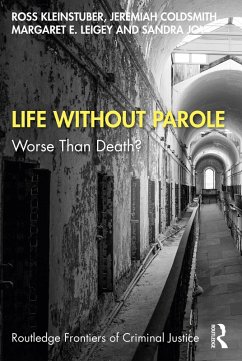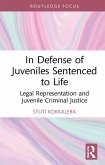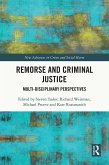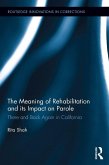Dieser Download kann aus rechtlichen Gründen nur mit Rechnungsadresse in A, B, BG, CY, CZ, D, DK, EW, E, FIN, F, GR, HR, H, IRL, I, LT, L, LR, M, NL, PL, P, R, S, SLO, SK ausgeliefert werden.
"Life Without Parole offers readers a comprehensive account of the role and impact of LWOP in the US. The book relies on various sources and methods, including the powerful voices of individuals who are serving life without the possibility of parole to illustrate the human and societal costs of this form of punishment. I recommend this book to those who study criminal justice sanctions, as well as those seeking to reduce inequality in the justice system." - Professor Nancy Rodriguez, Department of Criminology, Law and Society, University of California, Irvine
"Life Without Parole by Ross Kleinstuber, Jeremiah Coldsmith, Margaret Leigey and Sandra Joy makes a clear and compelling case that LWOP-life without parole-is a death penalty in its own right that should be abolished. This sanction, we learn from compelling interviews with affected inmates, is no more humane than capital punishment and may indeed create more suffering and injustice than the traditional death penalty. Real reform requires sentences that offer hope of release from prison, however tenuous that hope might be in individual cases." - Professor Rob Johnson, Justice, Law, & Criminology, American University









